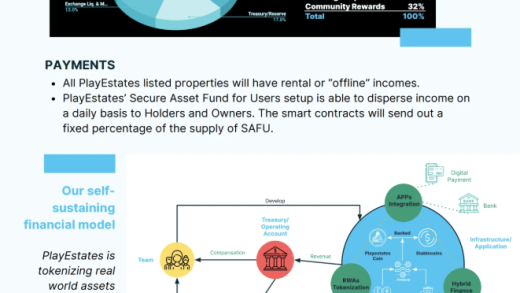
“You’re going to die anyway, so you might as well take a chance”: The survival philosophy of entrepreneurs
Problem analysis: The life-and-death choices of entrepreneurs
Entrepreneurship is a war without gunpowder, full of uncertainties, risks, and challenges. Many entrepreneurs will face a soul-searching question at the start: What if it fails? This fear often becomes a stumbling block preventing them from taking the first step. However, there is a philosophical view that can break this fear – “You’re going to die anyway, so you might as well take a chance.” This sentence may seem negative, but it actually contains profound survival wisdom: Since the end of life is death, why not go all out and pursue your dreams within this limited time?
The core of this philosophy lies in “living towards death.” It reminds entrepreneurs that the brevity and uncertainty of life are precisely the driving forces for action, rather than reasons for retreat. Entrepreneurs need to understand that failure is not terrible; what’s truly terrifying is never having tried.
Solution: How to practice the survival philosophy of “taking a chance”
1. Accept the possibility of failure
The essence of entrepreneurship is taking risks, and taking risks means the possibility of failure. Entrepreneurs must first accept this fact instead of trying to avoid it. Only by accepting the possibility of failure can they truly put down their psychological burdens and embark on the journey lightly.
Suggestions:
– Develop a “failure contingency plan”: Think in advance about the countermeasures after failure, such as how to adjust the direction and how to cut losses.
– Regard failure as a learning opportunity: Every failure is an accumulation of experience, providing a reference for the next attempt.
2. Focus on the goal and go all out
“Taking a chance” is not blind impulse but all-out effort after focusing on the goal. Entrepreneurs need to clarify their core goals and concentrate all resources on them.
Suggestions:
– Set clear short-term and long-term goals.
– Learn to reject distractions unrelated to the goal and avoid spreading your energy thin.
3. Cultivate a “resilient” mindset
Countless setbacks will be encountered during the entrepreneurial process, and resilience is one of the most important qualities for entrepreneurs. Resilience not only refers to perseverance but also includes the ability to adjust flexibly and recover quickly.
Suggestions:
– Spend some time every day reflecting and adjusting your mindset.
– Build a support system, including family, friends, or entrepreneurial communities, to get encouragement during difficult times.
4. Utilize the sense of urgency from “living towards death”
The philosophy of “you’re going to die anyway” can be transformed into a sense of urgency, motivating entrepreneurs to cherish time and act efficiently.
Suggestions:
– Set time limits: For example, “Complete the product prototype within three months” and use time pressure to drive action.
– Regularly review your progress to ensure that you are always moving towards your goal.
Case study: Elon Musk’s philosophy of “taking a chance”
Elon Musk is a typical representative of the philosophy of “taking a chance.” His entrepreneurial journey is full of high-risk and high-reward decisions.
Background
When Musk founded SpaceX in 2002, hardly anyone believed that a private company could successfully launch a rocket. At that time, he invested all his wealth and even prepared for bankruptcy. He once said, “If things don’t succeed, I might end up with nothing.”
Key decisions
- Bet on SpaceX: Musk invested all the funds from the sale of PayPal into SpaceX and Tesla. Both companies faced huge technological and financial challenges in the early stage.
- Three failed rocket launches: The first three launches of SpaceX all ended in failure, and the company was on the verge of bankruptcy. But Musk insisted on a fourth attempt and finally succeeded.
Results
- SpaceX has become a leading private aerospace company globally, successfully reducing the cost of rocket launches.
- Tesla has become a benchmark in the electric vehicle industry.
Insights
Musk’s story tells us that “taking a chance” is not blind risk-taking but the courage to take risks and persevere after full preparation. His success stems from his perseverance towards the goal and his calm acceptance of failure.
Conclusion: Entrepreneurship is a journey of “living towards death”
The philosophy of “you’re going to die anyway, so you might as well take a chance” is not only a survival philosophy but also an entrepreneurial attitude. It reminds entrepreneurs that the brevity and uncertainty of life should not be reasons for retreat but catalysts for action. The essence of entrepreneurship is to explore the unknown, and the courage to explore comes precisely from facing death directly.
Whether successful or not, a life of taking chances leaves no regrets. As the philosopher Nietzsche said, “Every day that you don’t dance is a betrayal of life.” Entrepreneurs, since you’ve chosen this path, please go all out and live towards death!
- Startup Commentary”Three post-2005 entrepreneurs are reported to have secured a new financing of 350 million yuan.”
- Startup Commentary”Retired and Reemployed: I Became Everyone’s “Shared Grandma””
- Startup Commentary”YuJian XiaoMian Breaks Issue Price on Listing: Where Lies the Difficulty for Chinese Noodle Restaurants to Break Through in the Market? “
- Startup Commentary”Adjusting Permissions of Doubao Mobile Assistant: AI Phones Are a Flood, but Not a Beast”
- Startup Commentary”Moutai’s Self – rescue and Long – term Concerns”





